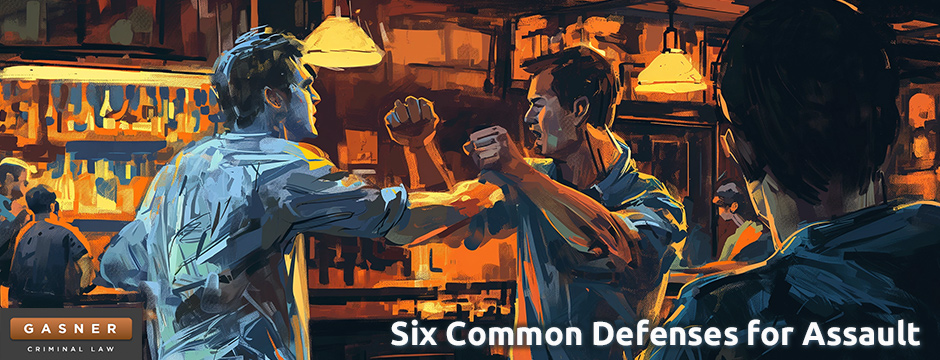
Possible Defenses for Assault
In California, facing assault charges can be a daunting experience. The state of California defines assault as an unlawful attempt, coupled with a present ability, to commit a unconsented to or offensive touching on the person of another (California Penal Code section 240). However, individuals accused of assault have several legal defenses available to them. This article explores some of the most potent defenses against assault charges in San Francisco, CA, providing insights into the legal strategies that Gasner Criminal Law might employ depending on the circumstances of the case.
1. Self-Defense
One of the most common defenses to assault charges is self-defense. In California, individuals are entitled to defend themselves if they reasonably believe they are in imminent danger of an unconsented or offensive touch. The key elements of this defense include the necessity of the defensive action, the reasonableness of the force used, and the immediacy of the threat. It's important to note that the force used in self-defense must be proportional to the threat faced.
2. Defense of Others
Similar to self-defense, the defense of others allows an individual to use reasonable force to protect another person from imminent harm. This defense applies when the defendant genuinely believed that someone else was in immediate danger of being assaulted and that their intervention was necessary for the person's protection.
3. Consent
In certain cases, consent can be a valid defense to an assault charge, particularly in situations where the alleged victim had agreed to a certain level of physical contact. This defense is often seen in sports-related cases or consensual fights. However, the scope of consent must be clearly established, as consent to some forms of contact does not imply consent to all physical interactions.
4. Lack of Intent
Since assault charges require an intentional attempt to harm another person, demonstrating a lack of intent can be a powerful defense. This might apply in situations where the defendant's actions were accidental or misconstrued as an attempt to cause harm. Proving the absence of intent can undermine the prosecution's case, as the element of intent is crucial for a conviction.
5. Mistake of Fact
A mistake of fact occurs when a person honestly and reasonably believes in a set of circumstances that, if true, would make their actions lawful. For example, if an individual mistakenly believes they are about to be attacked and acts in self-defense, this misunderstanding could serve as a defense to assault charges, provided the belief was reasonable under the circumstances.
6. Insanity
Though rarely used and difficult to prove, the insanity defense can be applicable in some assault cases. Under California law, if a defendant is found to have been legally insane at the time of the offense, they may be acquitted of the charges. This defense requires substantial medical evidence to demonstrate that the defendant was incapable of understanding the nature of their actions or distinguishing right from wrong.
Next Steps
Facing assault charges in San Francisco, CA, can be overwhelming, but understanding the possible defenses can empower defendants and contribute to a more informed legal strategy. It's crucial for anyone accused of assault to consult with a skilled criminal defense attorney who can evaluate the specifics of their case, advise on the best defense strategy, and advocate on their behalf. Legal defenses in assault cases are highly dependent on the unique facts and circumstances of each case, making personalized legal counsel indispensable.
Gasner Criminal Law stands ready to assist you in your time of need. Adam Gasner will protect your rights by challenging the prosecution's case and striving for the best possible outcome in your situation. Contact us today at 415-782-6000 to schedule a consultation and take the first step toward building a robust defense against allegations of assault.
*Disclaimer: This article is intended for informational purposes only and does not constitute legal advice. If you are facing assault charges, consult a qualified attorney for guidance.*

